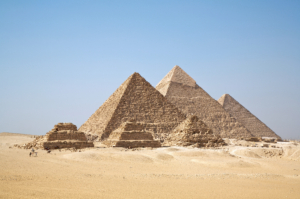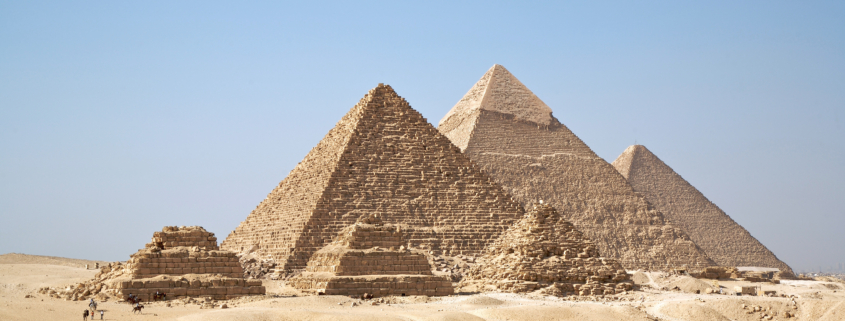There is No Substitute for Showing Up

Liberation cannot be outsourced. Showing up in person saves lives. The Haggadah emphasizes the point that God showed up “בִּכְבוֹדוֹ וּבְעַצְמוֹ – with God’s honor and presence” and goes out of its way to explicitly exclude “an angel, seraph, emissary, or other,” as mechanisms to free the Israelites from Egypt. The Torah further highlights the embodied nature of emancipation by describing God’s actions, anthropomorphically, as “with a strong hand and outstretched arm” demonstrating that the only way to truly honor and achieve the freedom of people is to be present.
By contrast, there are many structures and agents of oppression that succeed because the distance and separation they maintain from society permit and contribute to the dehumanization of others. The verse1 tells us about Joseph that “They saw him from afar, and before he came close to them they conspired to kill him.” Lack of proximity makes it easier to mistreat people.
Taking care of the needs of people is the invariable consequence of being intimately attuned to God. The Rabbis2 tell us that inviting guests is a greater mitzvah than receiving the Divine presence. Abraham demonstrates this when he asks God to wait while he focuses his attention on the angels.3 He had so completely internalized God’s benevolent will that running to help others became his natural way of being,4
not an outside force that informed Abraham’s acts of hospitality.5
The three matzot on the seder plate allude to the three measures of flour6 that were prepared for these visiting angels,7 which tradition teaches happened during the time of Passover.8 Each of the three guests was given an equal portion, modeling fairness in hospitality.9
Inviting guests, הַכְנָסַת אוֹרְ֒חִים, is rooted in the identity shift marked in the reordering of letters from “אחר -other” to “ארח -guest.” In the story of Kamtza and Bar Kamzta, where the invitation to a party was sent to the wrong person, it ended not just in the awkward denial of one individual access to the party, but it is the climactic incident to which the Talmud attributes the destruction of Jerusalem and the center of Jewish life in the Temple!10
It is perhaps for this reason that we declare “Anyone who is hungry, let them come and eat!” at the beginning of the Seder. Acknowledging the cause and effect of inviting guests allows us to confidently declare that “this year we are here, but next year we will be in Israel,” having now restored that which was broken.
The Talmud11 teaches that it is a bigger mitzvah to do something oneself than it is to have someone else do the same action on their behalf. Although the Talmud doesn’t explicitly state how the mitzvah is better when it is fulfilled by the person themselves, or what is lost when someone else is sent in their place. It is certainly significant as the Talmud12 posits that everything that Abraham did directly for the angels, as his invited guests, God reciprocated in the desert by showing up for the Children of Israel without an intermediary. However, all of the things that Abraham had instructed others to do only merited God responding in the future through an intermediary.
Maimonides, when discussing the available modes of getting married, offers a suboptimal option of sending a representative instead of actually showing up. His language is “מִצְוָה שֶׁיְּקַדֵּשׁ אָדָם אֶת אִשְׁתּוֹ בְּעַצְמוֹ יוֹתֵר מֵעַל יְדֵי שְׁלוּחוֹ – it is a better mitzvah to get married in person than through a messenger.”13 While this is certainly excellent premarital advice, it appears inconsistent with another teaching based on the same principle. In the laws of Shabbat, Maimonides writes “חַיָּב לַעֲשׂוֹת דְּבָרִים שֶׁהֵן לְצֹרֶךְ הַשַּׁבָּת בְּגוּפוֹ שֶׁזֶּה הוּא כְּבוֹדוֹ – a person is obligated to do something to provide for the needs of the shabbat with their body, for that is the14 honor.”15
The Talmud frames the hierarchy of “It is better to do a mitzvah oneself than through a representative” from the practice of the rabbis choosing to do something themselves, to honor Shabbat.16 Unlike marriage, where Maimonides holds that there are options in fulfilling the mitzvah, in regards to Shabbat he writes that there is an obligation on a person’s body to do the action, which clearly can’t be passed on to another. How can Maimonides learn the principle of “it is better to do a mitzvah yourself than through another” from a mitzvah that does not permit another to do the mitzvah?!!!
One way to understand the deeper impact of being present is by exploring what is lost with its absence. In order to demonstrate the fullness of an embodied spiritual action, in comparison to one that isn’t, the rabbis found a mitzvah whose entire essence exists only when we show up and is completely missing when we are not there; namely honor and dignity. By isolating the mitzvah of honoring the shabbos, and making it incumbent on each person to do it themselves, it illustrates that we neglect to provide that honor through our lack of presence in the fulfillment of every other mitzvah.
Early forms of idolatry incorporated this concept in justifying worshiping the stars and other celestial beings because interfacing with the lowly inhabitants of this world, providing for those who are struggling, was perceived as an affront to God’s honor. Over time, Maimonides argues,17 people forgot about God as the Creator of all things and artificially elevated their own image of what was holy and powerful. In a complete refutation of the heretical position that the dignity accompanying greatness is defiled through the upclose exposure of those in need, God descends – in all of God’s glory – into Egypt to take us out of bondage.
“וּבְכָל אֱלֹהֵי מִצְרַיִם אֶעֱשֶׂה שְׁפָטִים. אֲנִי וְלֹא הַשָּׁלִיחַ; אֲנִי ה’. אֲנִי הוּא וְלֹא אַחֵר – And I shall pass judgment on all the gods of Egypt – I and no emissary.18 I am the LORD – It is I and no other19.” Today’s idolatrous practice is not much different. By othering people, we erase their image as a reflection of the Divine and consequently, mold God’s image as a reflection of our own.
Showing up to help those in need is the essence of God’s identity.20 The first of the Ten Commandments is “I am Hashem your God – who took you out of the Land of Egypt.” When we show up with an outstretched arm, God extends it to our future redemption.
1. [Genesis 37:18.]↩
2. [Shabbat 127a.]↩
3. [See Rashi on Genesis 18:3.]↩
4. [See Siach Sarphie Kodesh 1:218.]↩
5. [Rav Nosson Gestetner – the wicked son does the mitzvah, but “וְלֹא לוֹ – doesn’t feel like himself.”]↩
6. [Genesis 18:6.]↩
7. [See Haggadah Vayigad Avraham page 36]↩
8. [See Genesis Rabbah 48:12 and Genesis 19:3.]↩
9. [See Rabbeinu Bachya 18:6.]↩
10. [Gittin 55b.]↩
11. [Kiddushin 41a – מִצְוָה בָּהּ יוֹתֵר מִבִּשְׁלוּחָהּ]↩
12. [Bava Metzia 86b – כּל מַה שֶּׁעָשָׂה אַבְרָהָם לְמַלְאֲכֵי הַשָּׁרֵת בְּעַצְמוֹ – עָשָׂה הַקָּדוֹשׁ בָּרוּךְ הוּא לְבָנָיו בְּעַצְמוֹ. וְכל מַה שֶּׁעָשָׂה אַבְרָהָם עַל יְדֵי שָׁלִיחַ – עָשָׂה הַקָּדוֹשׁ בָּרוּךְ הוּא לְבָנָיו עַל יְדֵי שָׁלִיחַ.]↩
13. [Mishneh Torah, Marriage 3:19.]↩
14. [There is a dispute if he means the honor of shabbat or the honor of the person doing the action.]↩
15. [Mishneh Torah, Sabbath 30:6.]↩
16. [Rashi on Kiddushin. See the Ran for a different approach and the Shulchan Aruch HaRav]↩
17. [Mishneh Torah, Foreign worship 1:1.]↩
18. [The four languages of exclusion correspond to the four languages of redemption.]↩
19. [Haggadah]↩
20. [This is perhaps the intention of “Who knows One? One is Hashem, in heaven and Earth.]↩

Rabbi Mike Moskowitz is a founding builder at Bayit, author of several books, and scholar-in-residence for queer and trans Jewish studies at Congregation Beit Simchat Torah.









